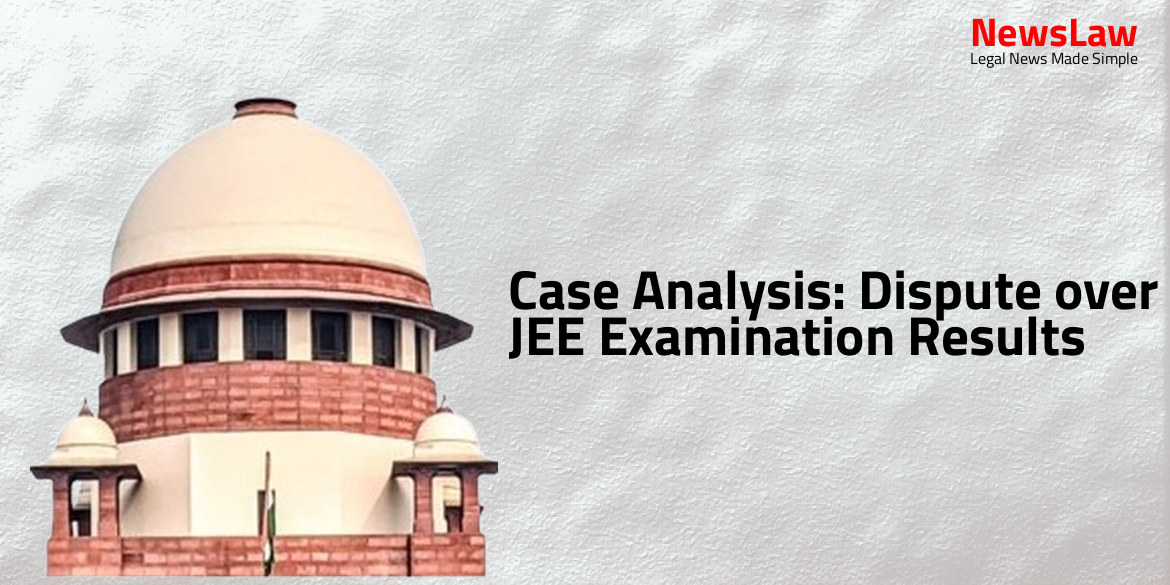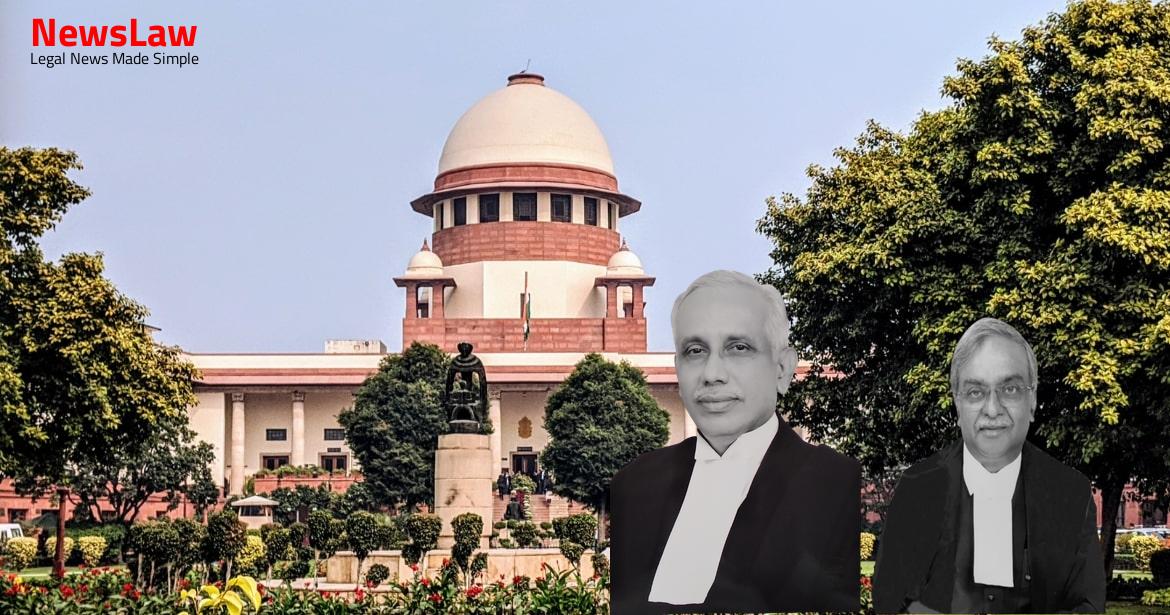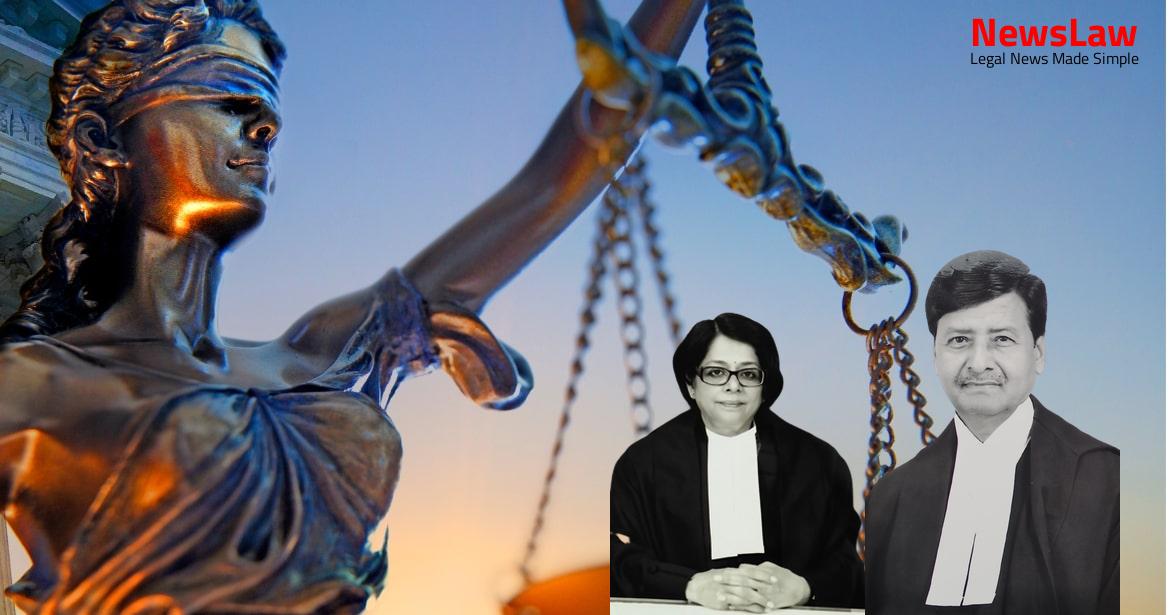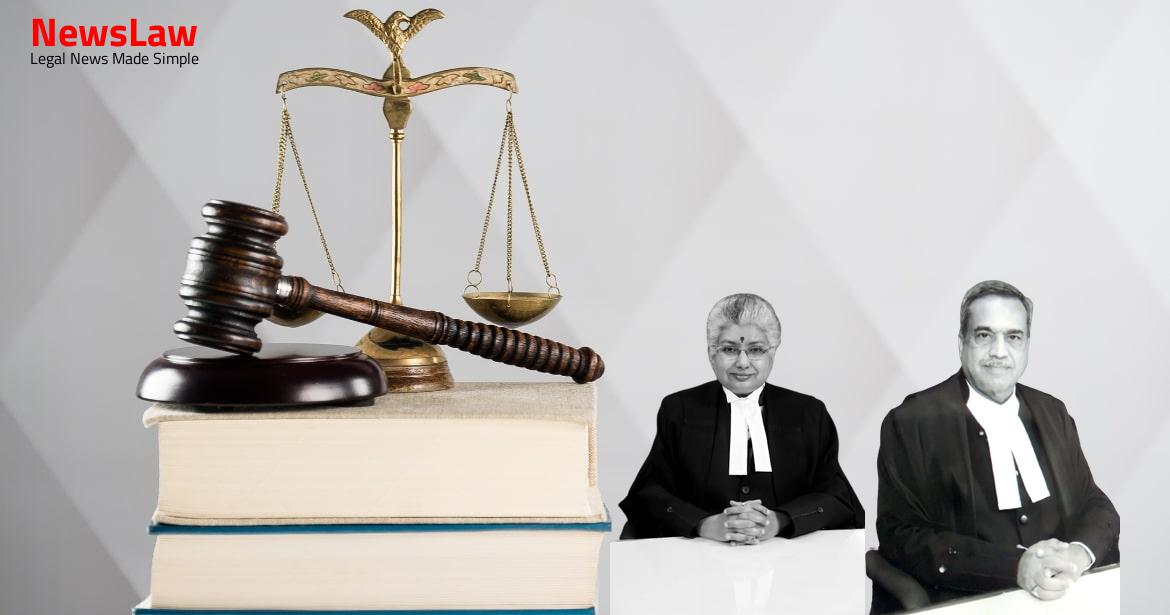In a recent judgment by the Delhi High Court, a case involving a dispute over the JEE Examination results has been thoroughly analyzed. The court examined the allegations and evidence presented by the parties involved, shedding light on the complexities of the matter. Stay tuned for a detailed overview of the legal proceedings and the implications it holds for the education system and the concerned individuals.
Facts
- First response sheet uploaded on 6th February 2024 and downloaded on 7th February 2024 at 2:33 am.
- Second response sheet downloaded at 11:10 am on 8th February 2024 is being challenged.
- JEE conducted in two stages: JEE (Mains) and JEE (Advanced).
- Candidates could challenge provisional answer keys from 6th February to 8th February 2024.
- Marking scheme: +4 for correct answer, -1 for incorrect, 0 for unanswered.
- Candidate had two attempts at JEE (Mains) and JEE (Advanced), better score considered.
- Computer-based random question sequence, candidate responses tracked electronically.
- NTA issued revised public notice changing challenge window from 7th February to 9th February 2024.
- Allegations of fabricated second response sheet and score card by the candidate.
- Petitioner alleges correct first response sheet and score card replaced by incorrect second version.
Arguments
- The petitioner claims that the first score card with Application Number 24031113568 is correct, without the terminal ‘7’.
- Mr. Khanna argues that the case involves disputed facts not resolvable under Article 226.
- Mr. Khanna asserts that there is no chance of error and accuses the petitioner of fabricating documents.
- Fabricated score cards have been used in previous cases related to the JEE Examination, according to Mr. Khanna.
- Mr. Khanna insists that the second response sheet and score card are genuine, as per NTA records.
- The second score card, claimed to be incorrect by the petitioner, displays Application Number 240311135687.
- Mr. Khanna relies on past cases where similar attempts led to petition dismissals with costs.
- He notes that the answer filling process and scoring are AI and computer-driven without human intervention.
- Mr. Khanna argues that the emblem of the National Testing Agency and the Ministry of Education on the first score card are distorted. He also claims that the unique QR code on the first score card redirects to a Wikipedia page, indicating it is fabricated.
- Ms. Joshi contends that there is no way the petitioner could fabricate a score card or response sheet, placing responsibility on NTA for any errors.
- Ms. Joshi denies that the emblems on the first score card are manipulated and asserts that upon comparing the responses with the final answer key, the first score card is accurate.
- She argues that in cases where facts can be determined without formal evidence, the writ court can adjudicate on disputed matters, challenging the notion of an absolute prohibition on such issues.
Analysis
- The petitioner’s submission to re-arrange the Option IDs before assessing the correctness of the first response sheet was not accepted.
- The petitioner selected the wrong option for Question 2 as per the first response sheet.
- The petitioner conducted a self-evaluation and provided charts for comparison.
- Comparison of the first response sheet and the final answer key revealed discrepancies.
- The petitioner’s self-evaluation did not align with the final answer key provided by NTA.
- The discrepancy was further analyzed to determine the credibility of the first response sheet.
- Multiple score cards were found, leading to additional complexity in the case.
- The Court found no material to support the petitioner’s plea to re-arrange the options before choosing the correct one.
- Disputed facts were considered for adjudication by the writ court.
- The academic career of the petitioner was a significant factor in the case.
- The functioning of the NTA was questioned regarding the issuance of multiple response sheets and score cards for one candidate.
- The petitioner’s self-evaluation claimed correctness in several answers, which was not supported by evidence.
- The Court emphasized the importance of adherence to established principles in evaluating exam responses.
- The petitioner failed to establish a prima facie case regarding the acceptance of two response sheets and two score cards by the NTA.
- Further investigation into the controversy was deemed unsuitable under Article 226 of the Constitution of India.
- The court concluded that the petitioner’s assertion of two response sheets and score cards was untenable.
- Discrepancies were noted in the application number on the first score card of the petitioner.
Decision
- Petition dismissed
- No orders as to costs
Case Title: VIBHUTI NEGI Vs. NATIONAL TESTING AGENCY & ANR. (2024:DHC:4644)
Case Number: W.P.(C)-5172/2024



